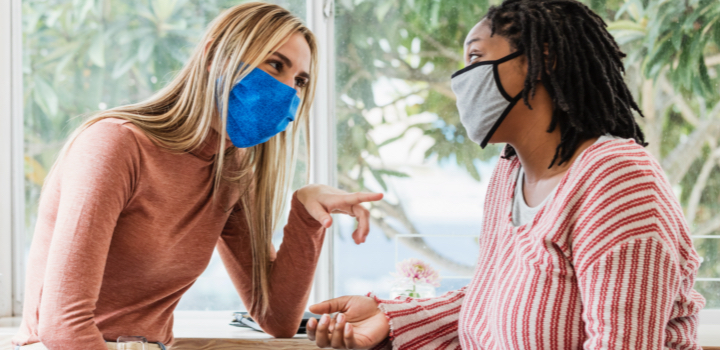COVID-19 misinformation: what it is and how to spot it

There is a lot of information online and shared on social media about the Coronavirus (COVID-19) pandemic and vaccines. This makes it difficult to know what is true and what is fake. Here are some tips on how to spot misinformation and fact-check.
Have you heard the term 'misinformation' and wondered what it means? Misinformation is false, inaccurate, or misleading information that is communicated and spread in order to deceive or feed fear. As the world rolls out interventions against the pandemic, it also needs to counter anti-vax misinformation and help people overcome vaccine hesitancy.
How can you identify misinformation?
People who publish misinformation often use websites, social media, and instant messaging platforms to spread fake news, usually relating to health issues, crime, and technology.
Africa Check offers the following tips to help you identify fake news:
- Google the story to see if a number of reputable and independent sources report it too.
- Search for the owner of the website.
- Check if there is a journalist or author listed, and if so, look them up.
- Check out the website's 'About us' page and see if it includes a disclaimer.
You should also find the following tips useful in verifying images or videos:
- Do a reverse image search to learn when the image came from. (Go to images.google.com, click the camera icon, then upload the image.)
- Look for visual clues that may suggest the image lacks authenticity or credibility.
- Map the picture or video to check the location in which it was taken.
Here's how you can report fake news and digital disinformation
Have you read or seen something that seems suspicious, or that you think may be false and is spreading fear, anger or panic? It's easy to report fake news and digital disinformation. Simply:
- Send an email to fakenewsalert@dtps.gov.za or WhatsApp 067 966 4015.
- Log into the website www.real411.org and report it there.
5 questions to ask yourself before you share links
Sometimes people innocently share information on instant messaging platforms like WhatsApp. Before you press the share button to any link or forwarded story, ask yourself the following questions:
- Am I sure this is not a hoax?
- Does it include shocking pictures, videos, or audio?
- Does the information make me feel scared or angry?
- Can I verify the claims?
- Who wrote it? What are their credentials?
Everyone can play their part in stopping misinformation if they:
- Think twice about sharing news that looks suspicious.
- Help in spreading the truth by only sharing verified information.
- Flag false news on social media.
Remember, you can find reliable, clinically-verified and fact-checked information about COVID-19 and vaccines on Discovery's COVID-19 information hub here.
All medical information found on this website including content, graphics and images, is for education and information objectives only. Discovery publishes content to help to promote a better understand of COVID-19 and COVID-19 vaccinations. The content covered is an overview of key concepts and is not exhaustive in nature. We encourage further reading from other credible sources where necessary.
South African organisations:
- National Department of Health's dedicated COVID-19 portal: https://sacoronavirus.co.za/
- National Institute for Communicable Diseases' (part of the National Health Laboratory Service) dedicated COVID-19 hub
- South African Health Products Regulatory Authority (SAPRHA - part of the National Department of Health).
- South African Medical Research Council (SAMRC)
- South African Medical Journal (SAMJ)
International Organisations:
- Johns Hopkins University
- Harvard Health, Harvard University COVID-19 resource center
- Mayo Clinic COVID-19 resource center
- New England Journal of Medicine (NEMJ)
- US Centers for Disease Control and Prevention (US CDC)
- US Food and Drug Administration (US FDA)
- World Health Organization (WHO)